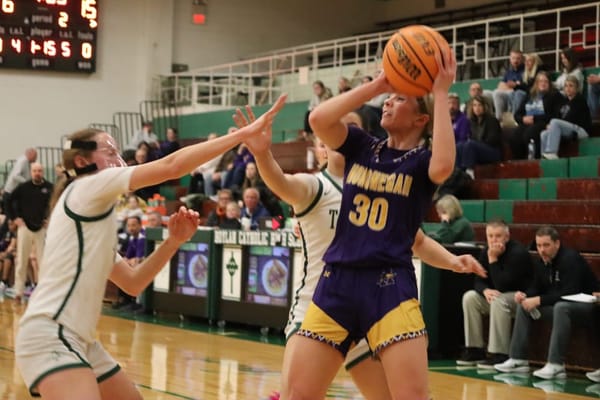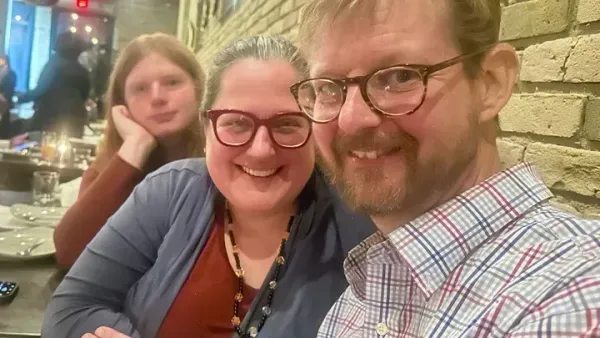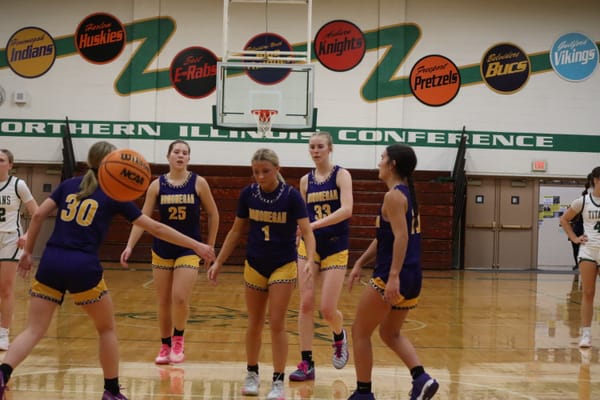Cyber-Parenting 101 - Keeping our Kids Safe
Detective Wistocki says there is no such thing as complete privacy for children.

Kinnikinnick School District superintendent Keli Freedlund introduced detective Rich Wistocki, a renowned expert on technology training for police, schools, parents and communities. Wistocki has been in law enforcement for 30 years and teaches awareness of cyber-crimes and drug abuse all over the country.
The presentation at Hononegah, Monday, March 14, was a cyber abuse awareness program, designed to educate parents raising children surrounded by today’s technology.
Wistocki walked out on the auditorium stage to an audience of approximately 20 parents and a few teens. “Where is everybody?” he said. “Why aren’t there a lot more parents here? This room should be packed full.”
For updates, subscribe to our free newsletter!
Earlier in the day, Wistocki met with teens at Roscoe Middle School. His presentation to parents in the evening was aimed at educating parents about cyber-crimes and what is really going on with their kids and social networking.
His advice to parents: “Know what’s going on(line.) We are living in the age of Snapchat, Instagram, TikTok and Twitter - networking opportunities that can open the door to sexting and bullying.”
Most social networks require users to be 13 years of age or older to have an account. “Check your child’s date of birth on their accounts to ensure they listed their true age,” he advised.
“Many children lie about their age and list the year 2000 out of convenience. It makes them appear 20+ years old. Once on, predators send them adult to adult messages.”
Parents frequently say, “My child wouldn’t do that. or, my daughter/son tells me everything.”
Wistocki said parents need to monitor their children’s software, get into their devices, and hand over their phones. "A lot of parents aren’t willing to do that."
Parents must know the code or password to unlock their child’s phone or device in case something happens. “Kids need mentors.” Parents are responsible for their children’s use. “Pay attention! Kid’s phones are everything to them.”
Wistocki says there is no such thing as complete privacy for your children. “Never allow your children to charge devices in their rooms at night. This is when they can participate in inappropriate video chats and potentially become victimized.”
Children should be able to tell their parents their on-line friend’s first and last name, where they live and where they go to school, not by what their “online friend” tells them.
Wistocki offered teens in the audience some sound advice: Before sending pictures, videos or snaps, think about the three 'P' test: "If you were to show this to a parent, priest or principal, what do you think they would say?”
He suggested parents should become involved and make an effort to understand the apps and games being used. “The more you understand about their online lives, the better you can guide and protect them from poor choices.”
Wistocki offered another word of advice: “Don’t tell your kids what you did when you were a kid (non-legal stuff.)”
There are monitoring tools available and approved by schools and trusted by parents. The Bark app is one recommended by Wistocki. It monitors unlimited number of children and accounts, detects potential risks 24/7, preserves children’s privacy and alerts you to issues along with next steps to help address them.
For more information, contact Bark at help@bark.us, or at www.cyberparenting-101.com.
<!-- EMBEDDED YOUTUBE URL: https://www.youtube.com/watch?v=k2buaziaNnE -->




